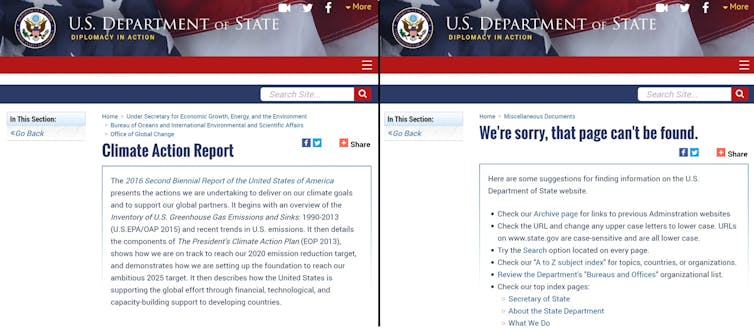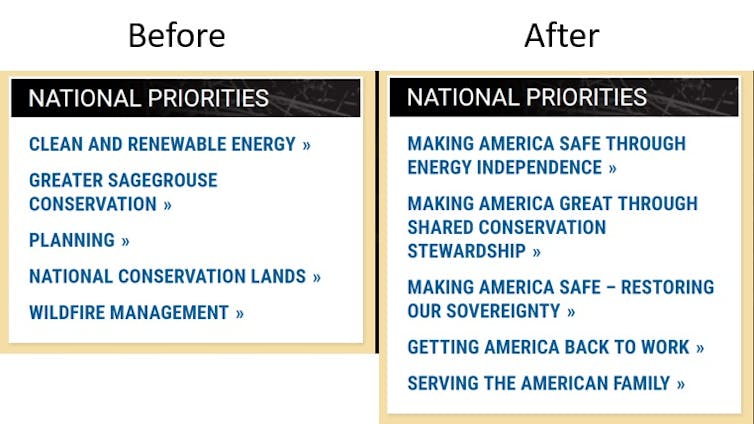Detroit Free Press
On the Straits of Mackinac: Waterfront view, apprehensions of disaster
Patty Peek April 6, 2018
 (Photo: Keith King, Associated Press)
(Photo: Keith King, Associated Press)
I am an incredibly blessed woman. I live on the shores of an area known as the Center of the Freshwater World: the Straits of Mackinac, where Lakes Huron intersects with Lake Michigan.
Each day, I look out over the clear blue water and thank my creator. No two days are ever alike on the Straits: The wind changes, the sky changes, the water changes.
One day the surf can be so ferocious that even the biggest freighters are forced to take shelter. On other days, it’s a tranquil mirror reflecting the clouds overhead.
I love these waters. They are vital to shipping, fishing, tourism — and to life itself. I have worked in Sub-Saharan Africa for the last 12 years. I have witnessed the challenges of a lack of access to clean water. I have seen the horrors of extended drought. I have watched women try to gather cups of water from puddles in the road after a rain. I have treated hundreds of children for water born diseases and health problems related to a lack of clean drinking water. When I look out at the Straits, I wonder why I am so lucky to have such a life-giving resource in my front yard.
I also wonder why we are not better stewards of this resource. Why aren’t we doing everything we can do to protect a resource that, honestly, is the most precious thing on Earth?
Waking to the peril
Over the past few years, I have became much more aware of the risk of the oil and gas pipelines running alongside and under our waters.
I have spoken out about the risks of Line 5, the two 20-inch-diameter oil pipelines owned by the Canadian company Enbridge, I have spoken about the difficulty of cleaning up an oil spill on days when the Straits are ice-covered, and not even the Coast Guard will venture out.
Related:
The possible cause of Straits of Mackinac leak
I never knew we had other dangers under our waters.
This past Sunday night, the electric transmission cable running under the Straits began to leak dielectric fluid, an an oily substance that may contain a known carcinogen.
The Coast Guard was alerted on Monday. In the meantime, a minimum of 400 gallons, of this substance (and likely much more than that) leaked into the beautiful fresh water of the Straits.
As I write this, on Wednesday, the cable is shut down. But there is no assurance that the leak is totally stopped; there are 4,000-plus gallons of that liquid sitting in those underwater cables, and the site of the leak is not known.
 Patty Peek is a registered nurse. She lives in St. Ignace. (Photo: Patty Peek)
Patty Peek is a registered nurse. She lives in St. Ignace. (Photo: Patty Peek)
Fragility, and peril
Right now, I am staring out my window, looking at the area where I would hope to see massive clean-up efforts. I would love to see a flotilla of ships, skimmers cleaning the waters of the substances, and volunteers combing the beach for birds and other animals that may have been affected.
But no — these are the Straits. We have sustained winds of 20 m.p.h, today, and gusts of 30 to 35 m.p.h. Our north shoreline (near the power transmission station) is still ice-covered, and we continue to experience a spring storm that brought 10 inches of snow last night and this morning.
No ships can venture out. No skimmers are employed. I’m sickened to know that beneath that ice and water, there is a potentially lethal, toxic substance that is floating in the water, meandering in the unpredictable currents of the lake. Is it gathering in a pool in front of my house? Is it swirling under the bridge? Is it floating past Mackinac Island or Sturgeon Bay?
What will this mean for the whitefish, lake trout, lake perch, walleye? What will it mean for the waterfowl? What will it mean for the cities and towns that rely on water from the Great Lakes for their drinking water?
So while the news is slowly filtering out from various media sources about what is being done, I see nothing out my window except a disaster in the making.

 Greenpeace Indonesia / Instagram
Greenpeace Indonesia / Instagram
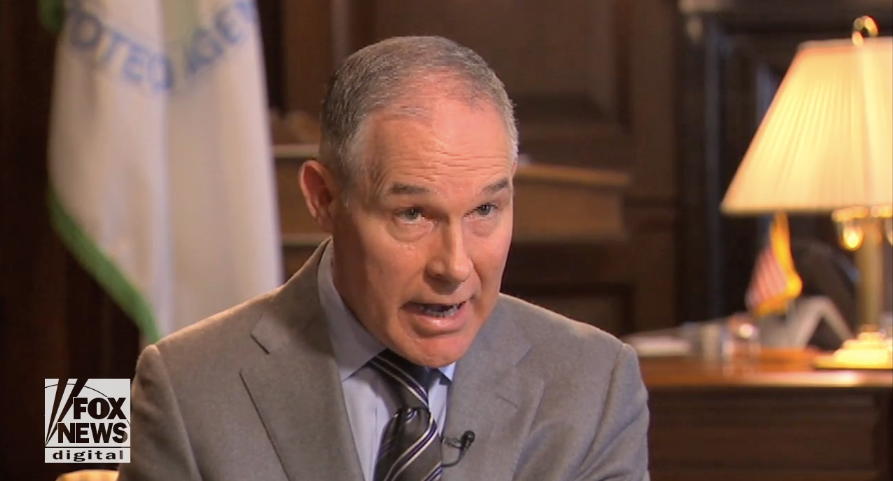 Screenshot
Screenshot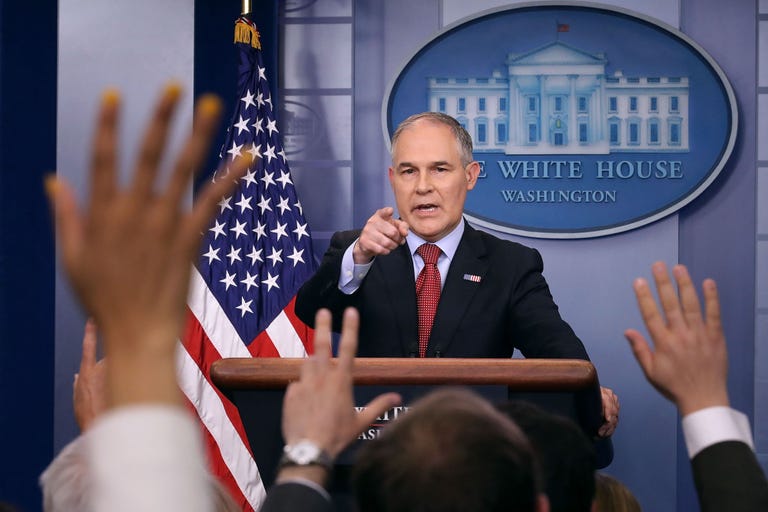 Getty Images
Getty Images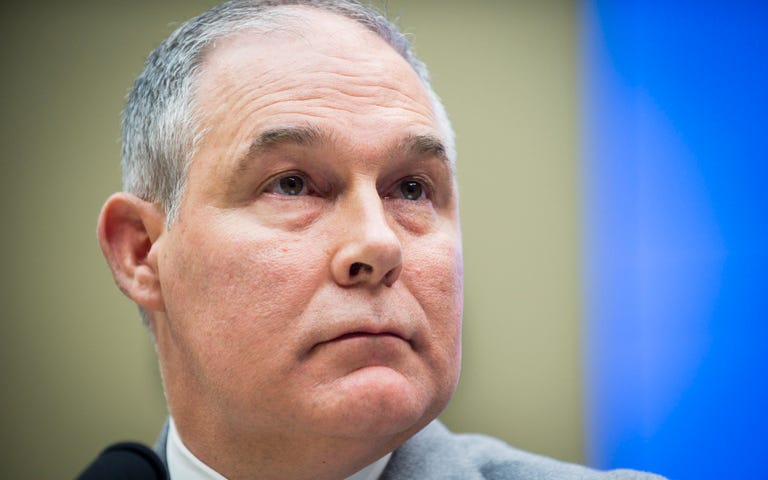 Getty Images
Getty Images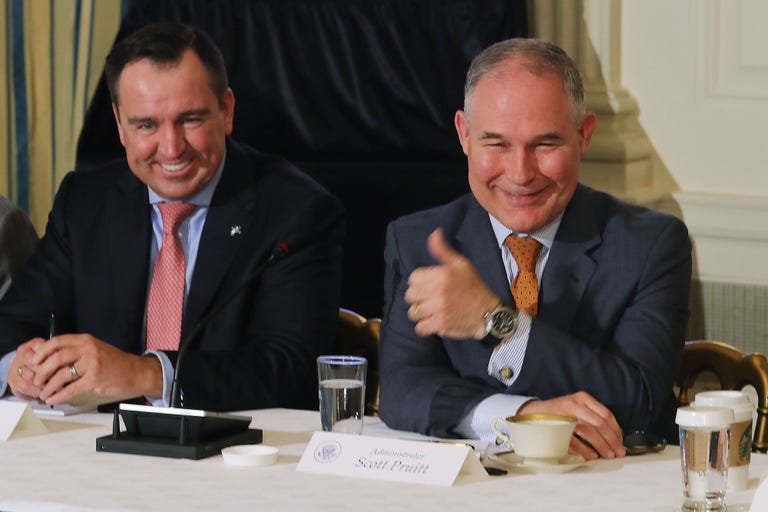 Getty Images
Getty Images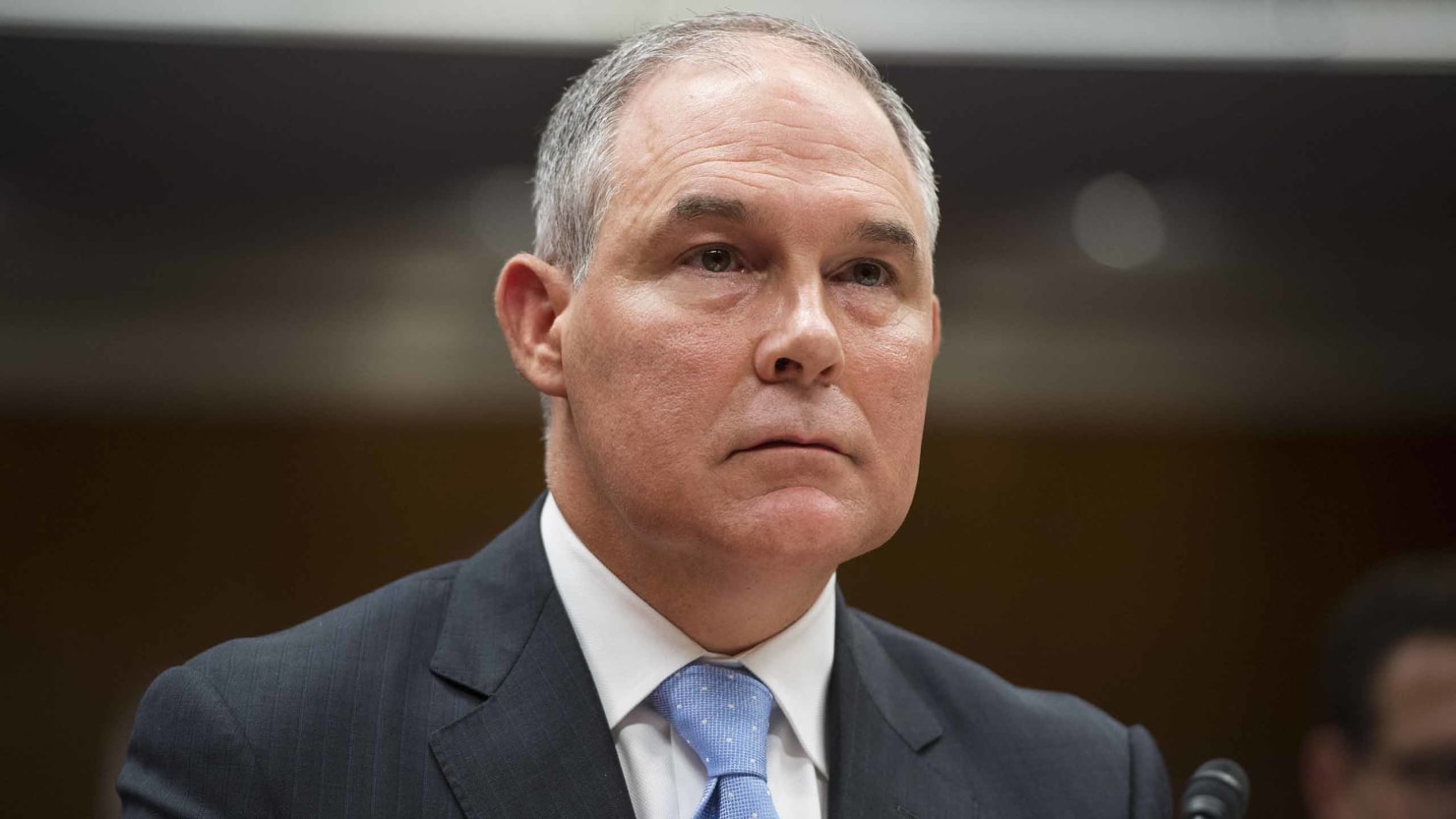 As he doggedly tries to save his job amid a mounting ethics scandal, Environmental Protection Agency chief Scott Pruitt has insisted that there was no formal or informal conflict of interest when he rented a room from high-profile Washington D.C lobbyist, J. Steven Hart.
As he doggedly tries to save his job amid a mounting ethics scandal, Environmental Protection Agency chief Scott Pruitt has insisted that there was no formal or informal conflict of interest when he rented a room from high-profile Washington D.C lobbyist, J. Steven Hart.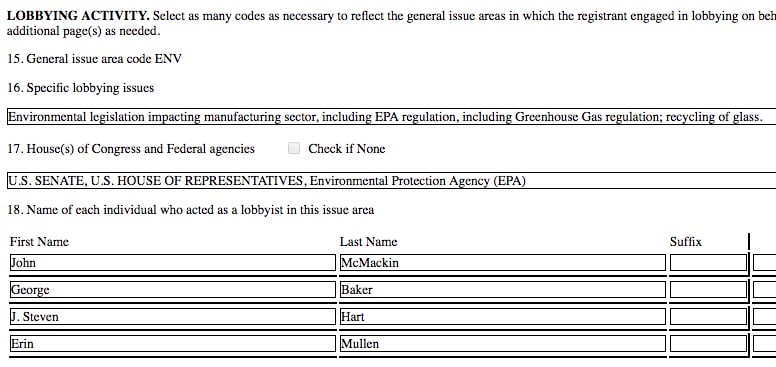 Steven Hart Lobbying Form
Steven Hart Lobbying Form

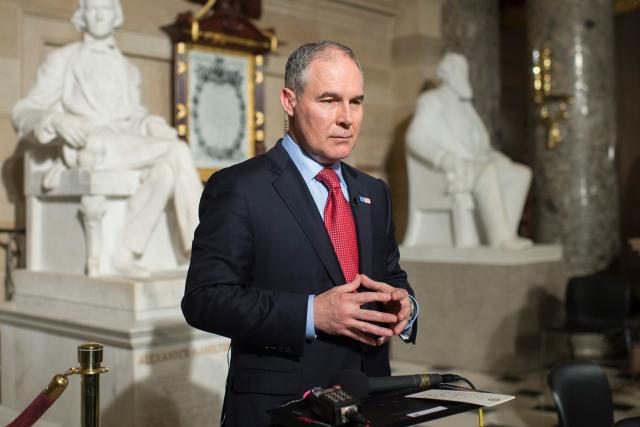 The future of Trump’s favorite polluter looks hazy.
The future of Trump’s favorite polluter looks hazy. The scandals surrounding EPA administrator Scott Pruitt continue to grow. Credit: Ricky Carioti / The Washington Post via Getty Images
The scandals surrounding EPA administrator Scott Pruitt continue to grow. Credit: Ricky Carioti / The Washington Post via Getty Images


